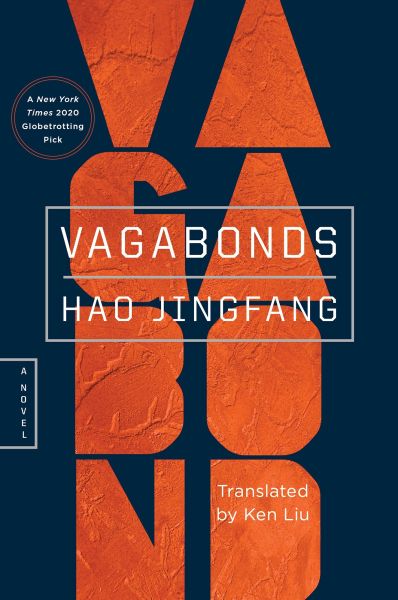Homeward Bound
Vagabonds
By Hao Jingfang

3 Jun, 2020
Hao Jingfang’s 2011 Liúlàng Cāngqióng was translated into English by Ken Liu and published under the title Vagabonds in 2020.
The Mercury Group, a cohort of Martian teenagers, returns to Mars after a five-year stay on Earth. Their visit was the latest stage in an effort to gradually warm relations between Earth and its breakaway community on Mars. The teens discover that relations are slow to warm … if they are warming at all.
Luoying is a member of the Mercury Group. But should she be? Did she really qualify for membership on her own merits or did she displace some more qualified person? Her grandfather Hans Sloan is the four-decade old Martian Republic’s first and to date only Consul; could nepotism have nudged the choice?
She returns from Earth with more questions, not least of which is whether Hans is the dictator the peoples of Earth believe him to be.
A number of unpleasant revelations follow. Kept carefully sequestered from unpleasant facts as a girl, Luoying was unaware that her parents had been in trouble for refusing to join an atelier (roughly, professional affiliation), a protest which led to their prison terms and accidental deaths. She had failed to appreciate that while Martians are largely free to choose their atelier, choose one they must.
Perhaps the most disquieting revelation is that Luoying was fully qualified to be a member of the Mercury Group. The academic tests were a distraction from the real criterion: hostage value. Mars handed Earth some well-connected teens as surety for Martian probity in trade negotiations. Luoying was the Consul’s beloved granddaughter: a perfect hostage.
Luoying and her group have to figure out what they want to do for the rest of their lives. They have to figure out where they stand politically. Who will be the next Archon? Will there be peace or war with Earth?
~oOo~
A detail that made me smile: it’s 2190 and Earth still doesn’t have commercial fusion power. The Martians do; Earth would like the tech, please. However, I have no doubt that even without Martian technology, Earth is only twenty or thirty years away from commercial fusion generators. After all, it’s been twenty or thirty years away practically as long as I’ve been alive.
From Mars’ perspective, Earth is a monolith. Up close, it is a collection of nations and commercial concerns that often operate at cross purposes. The Martians spend a fair amount of time worrying about Terrestrial intentions concerning Mars. Earth isn’t unified enough to have a single intention where Mars is concerned. Mars, on the other hand, tries hard for unity, which may be why they see more unity on the other side of the table than there actually is.
While there are some determined and not at all kind characters in this novel, there’s a shortage of black hats. The people who set tragedy in motion are sure that they are operating in everyone’s best interests. That lack of malice in no way precludes monumentally unjust outcomes, such as a team member selected for punishment not because he is guilty but because someone needs to be punished and he’s the one deemed least necessary to the group effort, Or Luoying’s parents being sanctioned for demanding policy changes, changes that are later adopted.
While the book hints that the two planets are headed for violent conflict, that never happens. The author is more interested in character growth than in writing milSF. The writing is elegant, allusive, and sometimes hard to parse. In some ways Vagabonds feels more like literary fiction [1] than science fiction. If that’s the kind of genre straddle you like, you might like this book.
Vagabonds is available here (Amazon US), here (Amazon Canada), here (Amazon US), here (Barnes & Noble), here (Book Depository), and here (Chapters-Indigo).
1: It reads like CanLit for me: importance of the physical setting; justified caution about a rich and powerful trading partner, a third act tragedy that comes more or less out of left field.
